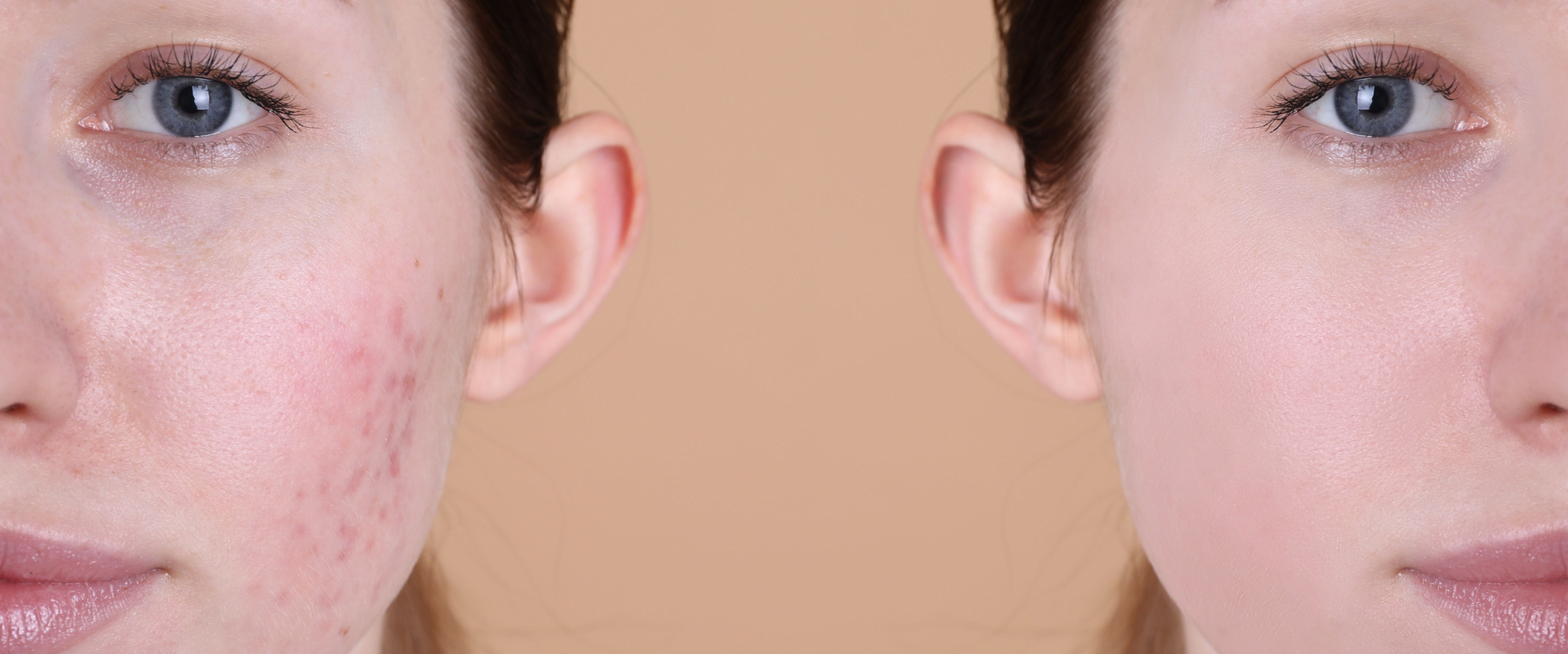
Scars are a common concern for many people, as they can be unsightly and make individuals feel self-conscious about their appearance. Fortunately, there are a variety of acne scar treatment options available that can help reduce the appearance of scars and improve overall skin health.
Types of Acne Scars:
- Atrophic Scars: these are depressed or sunken scars that are often caused by acne, chickenpox, or injury.
- Hypertrophic Scars: these are raised scars that remain within the boundaries of the original wound or injury.
- Keloid Scars: these are raised scars that extend beyond the boundaries of the original wound or injury.
Scar Treatment Options in Mira Bhayandar:
- Topical treatments: These include silicone gels, vitamin E oil, and over-the-counter creams that may help reduce the appearance of scars.
- Injections: steroid injections can be used to help reduce the size of raised scars such as keloids.
- Surgery: excision, punch grafts, and other surgical procedures can be used to remove or reduce the size of scars.
- Laser therapy: various laser treatments can be used to treat scars, such as fractional laser therapy or pulse-dye laser therapy.
- Cryotherapy: This involves freezing the scar tissue with liquid nitrogen, which can help to reduce the size of scars.
Prevention of Acne Scars:
- Keeping wounds clean and covered can help prevent infection and reduce scarring.
- Avoid picking at scabs or wounds, as this can lead to more scarring.
- Protecting scars from the sun can help prevent them from becoming more noticeable.
When to See a Doctor for Acne Scar Treatment:
- If a scar is causing pain or discomfort
- If a scar is affecting mobility or range of motion
- If a scar is accompanied by redness, swelling, or warmth, it may indicate infection.
Some natural ways to take care of Acne Scar Treatment:
- Keep your skin clean: Wash your face twice daily with a gentle cleanser. Avoid using harsh soaps or scrubs as they can irritate the skin and make acne worse.
- Use Tea Tree Oil: Tea tree oil has natural antibacterial properties that can help to reduce inflammation and fight acne-causing bacteria. Dilute it with a carrier oil and apply it to the affected area.
- Apply Aloe Vera: Aloe vera has anti-inflammatory properties and can help to soothe irritated skin. Apply a small amount of aloe vera gel directly to the affected area.
- Use Honey: Honey has natural antibacterial properties and can help to reduce inflammation. Apply raw honey directly to the affected area and leave it on for 10-15 minutes before rinsing off with warm water.
- Apply Green Tea: Green tea has anti-inflammatory properties and contains antioxidants that can help to reduce inflammation and fight acne-causing bacteria. Brew a cup of green tea and apply it to the affected area using a cotton ball.
- Use Apple Cider Vinegar: Apple cider vinegar has natural antibacterial and anti-inflammatory properties that can help to reduce inflammation and fight acne-causing bacteria. Mix equal parts of apple cider vinegar and water and apply it to the affected area using a cotton ball.
- Get enough sleep: Getting enough sleep is important for overall skin health as lack of sleep can lead to increased stress levels and inflammation, which can make acne worse.
- Exercise regularly: Exercise can help to reduce stress levels and improve circulation, which can help to improve overall skin health.
Frequently Asked Questions For Acne Scar Treatment in Mira Bhayandar
Yes, some acne scar treatments can cause side effects such as dryness, redness, and peeling of the skin. Oral medications may also have more serious side effects, such as liver damage or an increased risk of depression.
To prevent acne scars, it’s important to keep your skin clean, avoid touching your face, and avoid using harsh products or cosmetics. Additionally, eating a healthy diet and managing stress levels can also help to prevent acne scars.
